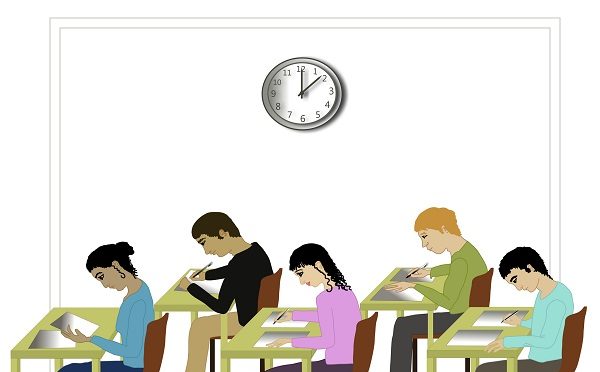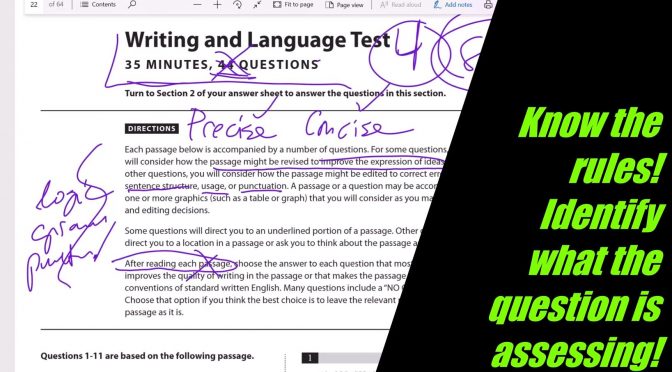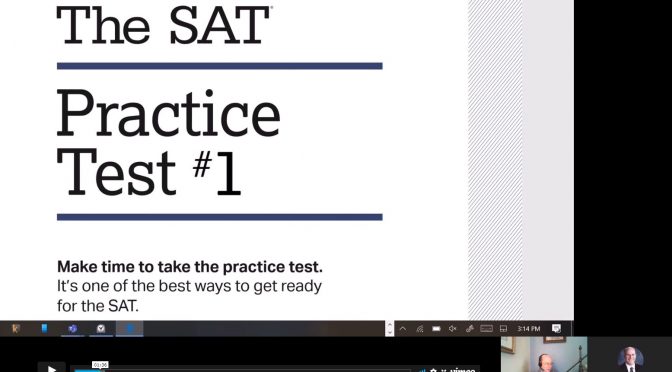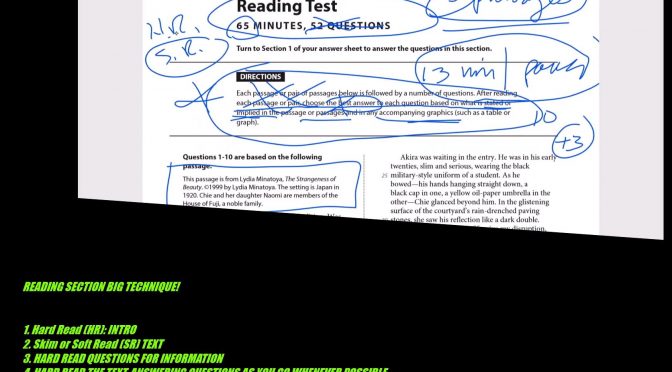 It’s hokey, trite, and boring: long live the great American high school graduation ceremony & hopes and dreams for students and parents!
It’s hokey, trite, and boring: long live the great American high school graduation ceremony & hopes and dreams for students and parents!
As a teacher I grew cynical about graduation ceremonies. At my school the faculty blessedly sat well behind the podium, mostly out of view. When one of our kind ever “went to the dark side” and joined the administration, we’d always riddle them with texts during the ceremony about having to behave and offering to pass along some Hot Tamales, the faculty currency during these tedious events. We ran bingo contests with student names, competed as to who could eat the most Hot Tamales at a time, bet on the length of the speeches, and otherwise fooled around worse than the children had done in our own classrooms.
I no longer go to graduation ceremonies for a living, but the other day my wife and I sat through a ceremony for a family member. Since we were in the audience, I had to behave. At least, I thought, the faculty of this school had to behave, too, as they were seated on the main floor by the students in full view of everyone. Ha!
Then I had to figure out how to survive it myself. My wife had banned all thoughts of listening to a podcast, so I put the phone on airplane mode and, unlike half the people around us, sat isolated from the outer world with only a graduation before me. So I begged my wife for a pen. She sighed, reached into that magic bag she calls a purse, and produced one. I spent the rest of the ceremony employing the advice I give students on how to survive a boring class by jotting notes on the program, deconstructing the events.
Grade Inflation!
My first notes regard how many times the principal bragged about grade inflation. Well, he didn’t put it quite like that, but he bragged over and over that 103 kids, about a third of the class, graduated with honors. I pondered how the rest possibly managed to get below a 3.5.
The clue was “Weighted GPA,” which is education-speak for honors-classes bonus where a C is a B, a B is an A and an A is a 5.0 on your 4.0 scale GPA. There were certainly kids taking honors courses (AP/ IB, etc.) that did not make a 3.5, but for those kids not taking honors, a 3.5 is truly a 3.5, whereas for the honors kids that’s just a C.
Administrative Bloat
My next notation reads, “7 or 8 Vice Principals!!” and is underlined three times. I was already shocked by the number of faculty — they streamed in like the Persian army of old.
Then the principal got to introducing the administrators. What should have been a quick, “Here’s Ben, our Vice Principal of Student Affairs” and “Meet Lucy, our Academic Vice Principal,” turned into a directory of all the administrative positions you never heard of. I attempted a quick mental calculation of the administrators times their bloated salaries divided by the county residents, but then I just got angry.
Next came introductions to the County Superintendent of Schools, a Director of Curriculum (was the County Director of Honors Programs unavailable?) and a couple Board of Education members. My notes read, “Memo to self: NEVER RUN FOR BOARD OF EDCUATION!”
The Superintendent took the easy route and had the kids write her speech. She just read off a list of quotations on the meaning of high school that the school had students send her. Our family graduate made the list with one I felt was rather apropos to my own take on the ceremony about not letting the haters get you down.
A Board of Education member then gave a speech she had to have pilfered from a web search on “trite graduation speeches,” featuring Robert Frost, of course, and his “The Road Not Taken.” I can’t remember if she got the title right, as it’s usually called “The Road Less Traveled” by most graduation speakers. And, of course, she read the poem.
Really? You read the poem? Okay, it’s only four stanzas, but make that four incomprehensible stanzas coming over a basketball stadium loudspeaker to an audience most of whose last breath of poetry came precisely at their own high school or college graduation ceremony, likely hearing this same poem.
She next delivered the standard tripe about daring to take the road “less traveled,” even though the poem states that both roads are equally traveled:
“…the passing there / Had worn them really about the same.”
Worst of all, and here I take offense on behalf of Robert Frost and all thinking English teachers, she assured the kids, heh, don’t worry, even if your road is the wrong one it’ll be alright because, “you can always turn around and go back the other way later.”
What’s horribly wrong with that misreading of the poem itself is precisely what’s wrong with an education system so full of backstops and “safety nets” that magically protects students from their own bad choices.
It starts with turning zeroes into 60% Fs, dumbed-down summer school and no-competition sports, and ends with the absurdities that we’re all winners no matter what we do – and one third of the graduating class receiving honors.
Nobody Better Than Anyone Else
But even those students are all equal among themselves, as the word “Valedictorian” didn’t make it into the program. The student speakers were the class president and another student whose title or honors went unmentioned. My notes here read: Memo to school: VALEDICTORIAN IS THE PERSON WHO DELIVERS THE VALEDICTORY.”
Usually, that’s the kid with the highest GPA but not always. I learned afterwards that the selection was based upon a speech contest, which is fine. Nevertheless, the word “valedictorian” did not appear in the program or the event, and no mention was made of who was no. 1 in the class. I guess we can distinguish a third from the rest, but not the one-percenter from even that top third.
Good & Bad Choices
“The Road Not Taken” ends with a “sigh” as the narrator considers that he may, in the future, look back upon the choice he is making today with regret:
I shall be telling this with a sigh
Somewhere ages and ages hence:
Two roads diverged in a wood, and I,
I took the one less traveled by,*
And that has made all the difference.
The job of educators is to guide children into making positive choices. By dumbing down both negative consequence and positive rewards, we are developing fragility in our children, not robustness.
There’s much pedagogical discussion about the benefits of failure, but clearly it’s not being implemented here. This school has a multitude of administrators whose job is to make sure as many kids as possible “earn” a 3.5 and as few as possible don’t somehow manage to fail out. With one-third the class earning honors, largely due to the grade inflation of the GPA “honors bump,” what’s the other two-thirds to do but ponder why they bothered at all?
The problem is that the failure is too easy and too little sanctioned. There is no pain in failure if summer school is easy and all stigma is removed. Worse, in offering no positive alternatives to academic failure, we merely make anything possible and that will too often be seriously bad choices. Our Board of Education speaker is only creating more future sighs of regret.
And let’s clarify here and now that a very few, if any, of the kids will be a trail blazer. I wish a normal life upon them all, one that, when they get to be my age, they don’t look back upon and sigh, as Robert Frost’s narrator knows he will one day, and wonder what might have been on that other road. The lie our speaker told is that each of us is unique and special and, by the way, we won’t be held accountable for our screw-ups. Maybe you’re the one. Good luck. But for the rest of us, let’s just see what we can do to make our paths — which are never really just a straight choice between this and that, and are instead a series of turns and cross steps — as safe and happy as possible.
A sigh for who didn’t make it – and applause for those who barely did
I know there were kids who didn’t make it through to their senior year and were not there that day. I also know there were kids who walked that stage but have not yet earned their diploma. For the ones who have fully graduated and who earned every bit of it — and not just the one-third of the class who benefited from grade inflation, I congratulate you, and I trust your road will be a well-planned, well-traveled, and safe route to happiness.
I rather love the kids who struggled, who got screwed by a teacher or two, possibly deservedly but mostly not, who dug a few holes, and who can’t remember what’s due when, but who fought back and graduated. God bless the 103 honors students, but the others are my heroes.
Yet, it’s the kids NOT on that stage who need to learn the meaning of the Frost poem. Those who weren’t there, dear Board of Education speaker, are your audience, and you might do a better job of helping them avoid the lesser roads they unfortunately took — and can now very little work back from.
Congratulations Graduates!
Honest, I’m not a buzz kill, and I congratulate the students and their families on this graduation. That’s wonderful and it’s an important rite of passage in our country. My cynicism is for the hordes of Principals and Vice Principals and Superintendents and Boards of Education who could use a refresher on the meaning of “The Road Not Taken.”
– Michael
* The “one less traveled by” isn’t a unique, different path, rather, it’s the narrator’s future rationalization for a regretted choice of today — and it couldn’t be a more inappropriate sentiment for a graduation ceremony.
 A+ Club SAT test prep resources and links (update)
A+ Club SAT test prep resources and links (update) 








 We hear it all the time. Students say, “I get it when my teacher shows it to me, but I can’t do it on the test.” Then parents tell us that their child “doesn’t test well.”
We hear it all the time. Students say, “I get it when my teacher shows it to me, but I can’t do it on the test.” Then parents tell us that their child “doesn’t test well.”
 What’s best for school, a laptop, tablet, or PC?
What’s best for school, a laptop, tablet, or PC?
 Search engine results reveal much about ourselves, something worth reminding both teens and their parents. Not only can a search history flag a teen’s behavioral choices, such as being frustrated over grades and homework, it tells us what’s going on in general.
Search engine results reveal much about ourselves, something worth reminding both teens and their parents. Not only can a search history flag a teen’s behavioral choices, such as being frustrated over grades and homework, it tells us what’s going on in general.
 It’s hokey, trite, and boring: long live the great American high school graduation ceremony & hopes and dreams for students and parents!
It’s hokey, trite, and boring: long live the great American high school graduation ceremony & hopes and dreams for students and parents!